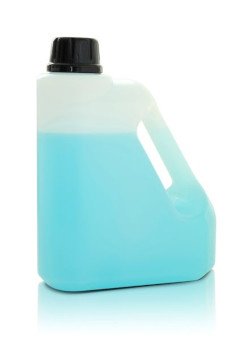Workplace (Secondary) Container Labeling
Most employers use the shipped containers they purchase to store and use chemicals.

However, they may also use their own containers such as coffee cans, drums, plastic jugs, spray bottles, etc. to store and use smaller quantities of chemicals they purchase. These are called workplace or secondary containers.
The employer must ensure that each workplace (secondary) container of hazardous chemicals in the workplace is labeled, tagged or marked with either:
- the information required on shipped container labels; or,
- product identifier and words, pictures, symbols, or combination thereof, that provide at least general information regarding the hazards of the chemicals, and that, in conjunction with the other information immediately available to employees, provide employees with specific information regarding the physical and health hazards of the hazardous chemical
Bottom line, the employer must ensure that employees still get all the hazard information from the elements of the hazard communication program implemented in their workplaces that they would have gotten from a shipping label. To do this, the employer should conduct additional training, discuss SDS information, use signs, process sheets or other types of warning to supplement the secondary label information.
Look at the image to the right. OSHA inspectors see this all the time and cite the employer for lack of proper labeling. This also tells the OSHA inspector they need to look at the overall HAZCOM Program because it's obvious the program is not working.
Knowledge Check Choose the best answer for the question.
4-4. What will an OSHA inspector likely think when a workplace container isn't labeled?
You forgot to answer the question!
